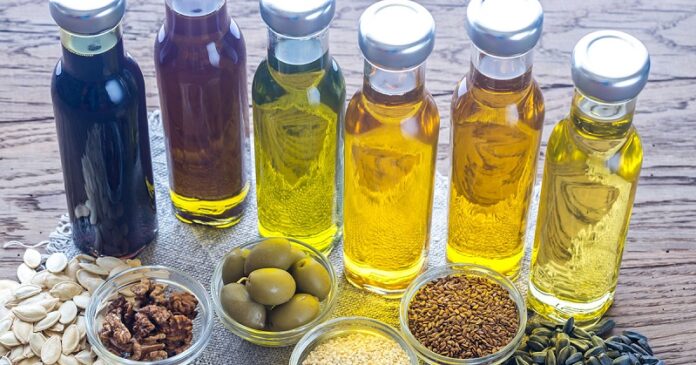Oils are commonly used to produce a variety of foods, from salads to main courses and even snacks, making them a significant element of the daily diet. As their desire for a healthy lifestyle rises, people are choosing cold-pressed oils over regular/refined oils to maintain optimal cardiac function. It’s difficult to discern the difference between the two types of oil when cooking or tasting food, yet they have distinct nutritional, physiological, and chemical features.
The process of extraction makes a huge impact on the quality and flavor of the oil. Cold-pressed oils get extracted by crushing oil-bearing nuts or seeds under pressure using low-heat processes.
Typically, the seeds get placed in a massive cylinder and continually spun and crushed until all of the oil gets gathered. Because the technique does not use excessive heat or chemical solvents, cold-pressed oils preserve their natural flavor, taste, fragrance, and nutritional content. “Not only is the oil good for your heart, but it’s also good for your skin when used topically.” On the other hand, ordinary refined oils get extracted utilizing high temperatures.
1. Cold Pressed oil

Seeds, fruits and vegetables, and even nuts get used to making cooking oils. Oilseeds such as sunflower, canola, coconut, sesame seed, and olive are cold-pressed without the use of heat. When the heat gets applied, it destroys both the flavor and nutritional value of the food. Crushing the seeds or nuts and pressing the oil out is what the cold press method entails.
Benefits

Polyunsaturated fatty acids are plentiful in them. Vitamin E and phenols are also included, which help to lower blood cholesterol levels, protect the liver from oxidative damage, and reduce oxidative stress. Cold-pressed oils are high in oleic acids and can help enhance the immune system. They are high in omega 3 and omega 6 fatty acids. They also include zinc and vitamins like A, C, E, D, lecithin, and potassium.
Bioflavonoids are also found in cold-pressed oils. Cold-pressed oils, according to skin specialists, may get used as a toner and moisturizer. They also serve as a hair mask and are an excellent treatment for frizzy hair. Cold-pressed oils that contain fragrance components, as well as vitamins and nourishing elements, are ideal for application on the face and neck. Cold-pressed oil combined with tint or foundation cream, according to cosmetic experts, can get used as a basis during make-up application.
Uses
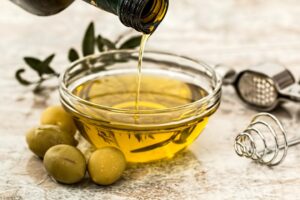
Despite the fact that there is no scientific evidence to support the topical use of olive oil is a common element in many soaps, body washes, and lotions. Haircare treatment 1–2 tablespoons (15–30 mL) olive oil can get used to treating split ends or massaged into your head to relieve dryness. Then, wash and thoroughly rinse. Moisturizer. To moisturize your skin, apply a little layer after bathing, or mix a dime-sized amount into your regular lotion before use. Excess oil should get wiped using a towel. Moisturizer for the cuticles. Massage a drop of olive oil onto each fingertip to treat chapped, cracked, or dry cuticles. Because inferior olive oils may have major skin irritants.
Side Effects
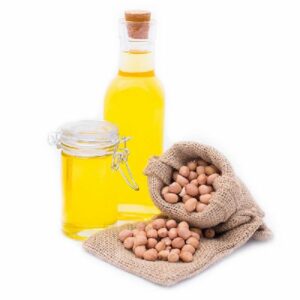
Depending on the source seed or nut, different cold-pressed oils have varying levels of PUFAs and antioxidant compositions. Most cold-pressed oils on the market are high in PUFAs and antioxidants, which causes autoxidation. This lipid oxidation process degrades the oil’s quality by accumulating unhealthy sediments and shortening its shelf life. To address this issue, many cold-pressed oil companies fortify their oils or modify the oil manufacturing technology to extend their shelf life. It is common practice to
combine cold-pressed oils with some unsaturated fatty acid oil or refined oil.
2. Regular Pressed Oil

Mechanically refined oils are often treated to high heat to “soften” the ingredients while in the oil press; the high heat eliminates many nutrients naturally contained in nuts and seeds. Chemically refined oil, like most vegetable oils, gets produced by separating the oil from the parent component using heat and chemical solvents. A hexane solvent gets employed in this technique.
The oil is then heated to distill the hexane before getting bleached and deodorized. Chemically treated oils are not regarded as healthy for consumers, yet they continue to exist due to the efficiency of oil extraction and the manufacture of heat-tolerant oil. Furthermore, artificially processed oils might conceal inferior quality constituents, greatly lowering expenses as compared to producing unprocessed oils. The refining process removes the majority of the beneficial nutrients and antioxidants, resulting in a less healthy product.
Benefits
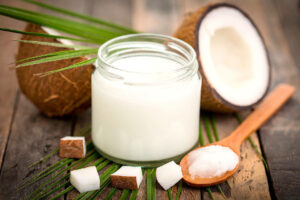
Degumming, bleaching, and deodorization are all part of the physical refining process. It entails the removal of gum from oil via the degumming process, as well as a particular method for eliminating FFA (free fatty acids) during the steam deodorization process. Physical treatment is less expensive, uses fewer chemicals, generates less waste, and yields more oil. This approach is highly recommended for oils with a high free acid content but a low phospholipid content.
Uses
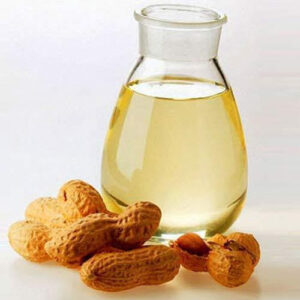
Because refined oil has a high smoking point, it is a popular option for everyday cooking. A bottle of refined oil may get used for anything from deep-frying pakoras to sautéing vegetables and marinating meat.
3. Regular Pressed Oil vs Cold Pressed Oil

Cold-pressed oils are unquestionably better for you than processed oils. The majority of the nutritional capacity of refined oil gets lost when it gets subjected to high heat and chemicals. Cold-pressed oils, on the other hand, retain the majority of their nutrients due to a heat-free and chemical-free production procedure. The majority of cold-pressed oils are high in vitamin E, which has anti-inflammatory qualities, and oleic acid, which enhances immunity.
In regular pressed oil acid refining, alkali refining, and other processes got used in the chemical approach. This approach got preferred for oils with high phospholipid content and oils containing gossypol, which can only get eliminated by alkali treatment. First, the oil is degumming, which is a procedure of removing gum, seed particles, carbohydrates, proteins, residues of metals, and other contaminants.
Following that, it gets treated with sodium hydroxide, alkali solutions, and other chemical solutions. Following that, undesirable tastes, odors, and pigments get eliminated by bleaching and deodorization. All types of oils get refined from seeds such as sunflower, peanut, sesame, mustard, and others using diverse methods, apparatus, and equipment.
Conclusion
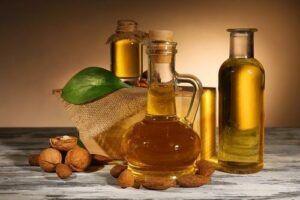
With so many different types of oils on the market, it is critical to understand the type of oil you are eating. Cold-pressed and regular pressed oils have a high nutritional value but are extremely unstable at higher temperatures. On the other hand, Cold-pressed oils have a large number of benefits in comparison to regular pressed oils.
What is the best oil for cooking? Well, if you take the health benefits into consideration then the best oil for cooking will be cold-pressed oil.

